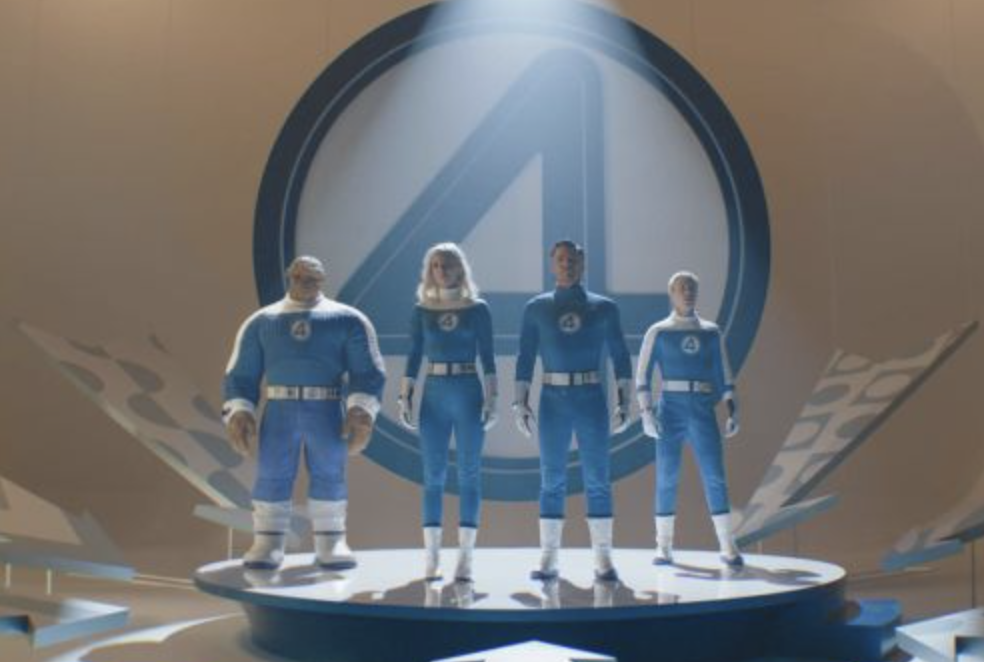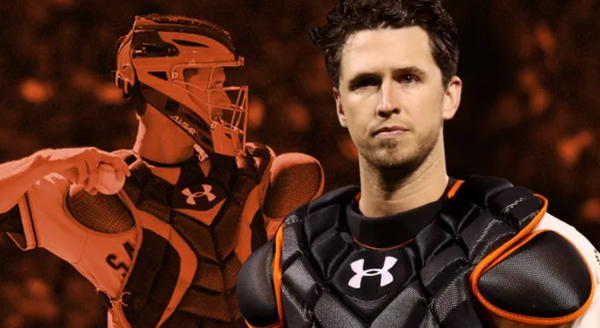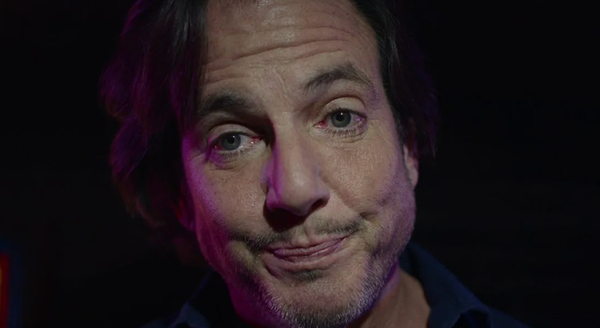'First Steps' nails it
For the Fantastic Four, the fifth time is apparently the charm.

I've written before about my favorite comic book of all time, The Fantastic Four, which contains my all-time favorite comic book character, Ben Grimm, AKA The Thing. I've also written a lot about comic book movies and comic book shows, including just two weeks ago, when I wrote about Superman, a movie that thought was great and which everyone seemed to hail as revitalizing the entire superhero movie enterprise, although I wasn't clear just how.
The Fantastic Four: First Steps was released last week, which marks the fifth time that Marvel's first family have been given a movie of their own. The first one, made in 1994 by schlockmeister Roger Corman, was never officially released and was produced merely to keep a copyright locked in. It became a legendary bit of bootleg trading tape fodder, nearly on par with the Star Wars Christmas special in terms of so-bad-it's-worthwhile nerd lore.
Fox released Fantastic Four in 2005, predating the MCU but smack in the middle of studios' attempts to capitalize on the X-Men boom of the early 2000s, where that franchise proved comic book movies could be successful in the new millennium, but execs and creative teams staunchly refused to learn the lessons of why the Tim Burton Batman and Richard Donner Superman films had been phenomenons in their respective eras. Fantastic Four was a box office success – or at least enough of one to spawn a sequel, 2007's Fantastic Four: Rise of the Silver Surfer. Both movies earned over $300 million at the box office but were lambasted by critics and widely mocked by comic book fans. (I liked both of them at the time, but that was mostly because I was starved for Fantastic Four media and desperate for the wider public to love the characters as much as I did. I realize that second sentiment is what has led to the overabundance of superhero content and the entitlement so freely wielded by Zack Snyder and Star Wars fans, but I confess that I'm only human.)
Josh Trank's reboot in 2015, Fant4stic, showed tremendous promise in production. (Michael B. Jordan as Johnny Storm in an inspired bit of casting!) Unfortunately, the studio appeared blindsided when Trank turned in a "morose" film, and scrambled for extensive reshoots, a new ending, and a new edit. The final film was a failure in nearly every respect, and Trank's career took a hit that it still has not recovered from.
A full decade of MCU movies and endless "when will they finally do The Fantastic Four" fancastings later, The Fantastic Four: First Steps has finally arrived. It is the first truly standalone film in the Marvel Cinematic Universe since Iron Man, and further sets itself apart by not even being set in the same universe as every other MCU movie. The film begins in media res, four years into the titular team's career as protectors of a 1960s retro-futurist version of our own planet Earth. I would say that the choice of setting (and accompanying glorious Jack Kirby-swathed production design) is the film's masterstroke, but the movie is essentially a collection of masterstrokes.
While the bulk of the film deals with The Fantastic Four's most famous story, The Galactus Trilogy, the creative team (led by director Matt Shakman) gleefully decided that instead of using one idea for a Fantastic Four movie, they should use all of them. That sounds like it could be overkill, but it's handled masterfully. Basically every 1960s FF trope is present: The Mole Man, the monster the team battles on the famous first issue of their comic, the Wizard, H.E.R.B.I.E., the Mad Thinker, Ben Grimm in a slouch hat, Jack Kirby and Stan Lee as the Jack Kirby and Stan Lee of the 1960s comics, Yancy Street, the birth of Franklin Richards ...
But the unifying thing connecting it all, the number one thing that always, always, always makes the Fantastic Four work, is that these four people are a family. A family that loves one another to death (and beyond) and needles each other. They bicker and fight and get on each other's nerves, but they were bound by their affection for one another even before they became the only four superpowered beings on their planet. And although The Thing is the character who ends up having the least number of opportunities to shine, I'm not even mad about it. That's how good the movie is. (It doesn't hurt that every last outfit they put The Thing into in this movie is absolutely dynamite. Sweater vest over gingham check dress shirt on a 1,000-pound rock man? Get after it.)
Pedro Pascal gets top billing as Mister Fantastic, but it's Vanessa Kirby's Invisible Woman who is the true lead of this movie ... as it should be. Kirby is given a whole bunch to sink her teeth into here, and she is plenty up to the task. Pascal, for his part, threads the all-important needle where the character of Reed Richards is concerned: a man whose intellect enslaves him to the self-imposed duty of trying to solve every problem imaginable, but who does it all in pursuit of the people he loves the most. The movie makes him inept at many exceedingly simple tasks, because it nearly pains him to devote his valuable genius bandwidth to mundanity. (It's a great way of putting on film my all-time favorite Reed moment, which is at the core of the character: Dr. Doom – a man of Richards' intellectual equal, but also a master sorcereor – traps Reed in a magical room, and fills the room with every resource Reed would need to escape. But it does Reed no good, because he is a scientist, and magic doesn't make sense to him.)
Ebon Moss-Bachrach, of The Bear fame, is a perfect voice for The Thing, despite my not being entirely sold on his casting. And Joseph Quinn ends up being a tremendous Johnny Storm, even though his dye job and blue contacts were the only bit of production design that took me out of the movie in any way. (Storm was just played by Michael B. Jordan in a previous movie. If you didn't cast a blond guy for Johnny, I promise we'll get over it.)
Rise of the Silver Surfer was dragged over the coals for portraying Galactus – one of the most iconic comic book villains in history – as more of a force than an entity, and mostly portrayed the character as a cosmic cloud. First Steps gleefully shows Galactus in all his glory throughout the movie, big stupid helmet and all. They got it right, just as they got everything else in this movie right. It's worth a watch for the design alone, but it's an absolute romp in general, made all the more appealing to people burnt out on superhero movies by not requiring a second of pre-movie viewing or reading.
It took over 60 years, but Marvel's first family finally got the movie they – and their fans – deserved.



